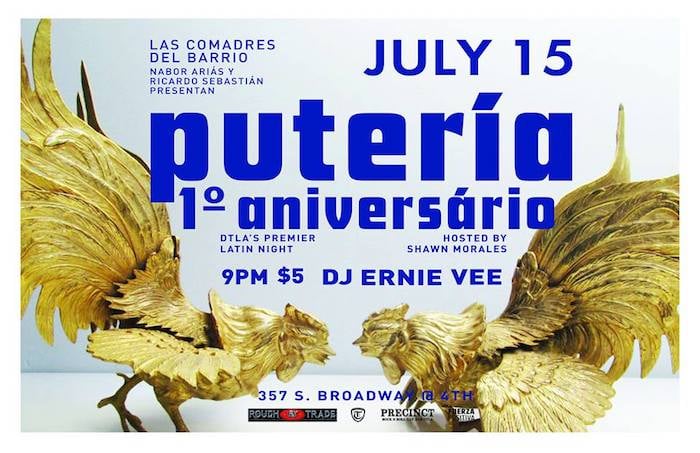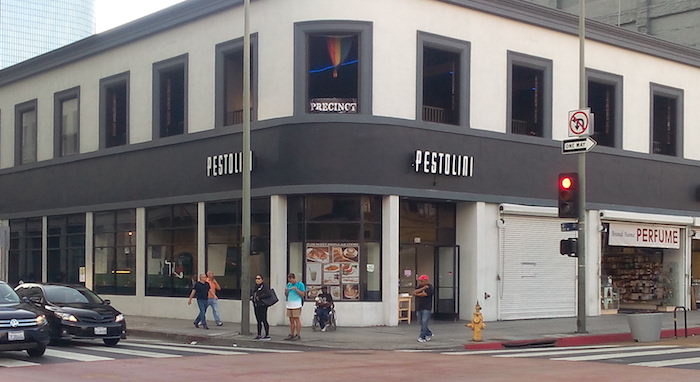
LOS ANGELES — Putería — Precinct’s popular, monthly Latin night – will have a fiesta grande Saturday to celebrate its one-year anniversary.
Thor Stephens and Brian McIntire, owners of the 8,500-square-foot Precinct, outreached last year to Ricardo Sebastian, who has promoted gay Latin club nights across Los Angeles, to help fill the bar’s Saturday lineup. Sebastian then recruited his friend, Nabor Arias, and they launched Putería.
“There was and still is a necessity for space that caters and serves people of color, LatinX, black and everyone in between, a place where our Latinx LGBTQ brothers and sisters can come out with their friends to dance, drink and be safe,” Arias said in an email.
As a way of giving back and bringing awareness for the gay Latin community, Arias and Sebastian invited two groups to Putería: Fuerza Positiva — an outreach program that helps HIV positive, Latin men with any questions or concerns regarding their status and directs them to healthcare — and Los Protectores from GetPrEPLA, who offer information on PrEP, a pill that helps prevent HIV transmission.
In an interview with Q Voice News, Sebastian shared his thoughts on what makes a great party and what’s next for Putería. Here are some excerpts.
On what three elements are required for a great party
“The guest, the music, and a friendly inclusive environment where people feel like they can be who they are,” Sebastian said.
On the mistakes people make when party planning
“Sometimes events are soooo filled with sound and distractions, lasers, smoke and lighting effects, that you can’t escape and find a quiet spot to be with friends or have a cigarette.”
Also, “When the event is narrow the focus so it excludes people or makes them feel not welcome,” Sebastian said. “For example, you have a leather event and if someone without leather or if a woman shows up, you make them feel uncomfortable and not welcomed. Or, you go to a muscle boy circuit party and if you don’t fit that look you get bad service or the door person doesn’t greet you in the same way as the others.”
On why it’s important for the gay Latino community to have a Latin night
“It’s important to see yourself reflected in the mirror. If you only look in the mirror and see a white muscle twink, you think the entire world only wants that image,” Sebastian said. “Gay men are social creatures by nature, so we gather. By going somewhere where we see ourselves reflected in others being sexy, desirable, having fun, and being comfortable gives us validation.”
On how Putería is different from other gay Latino nights in Los Angeles
“We are set up like a big house party where everyone is invited to hang out, grab a beer, and there is always room for everyone. No one is excluded at our events. That’s why you see all types of Latin men — from the fairest to the darkest and, of course, the men that love them,” Sebastian said. “Most people only cater to one stereotypical Latin man. We know that Latinos come from all walks of life and all races, but what unifies us as Latinos is our language, culture and shared traditions and experiences.”
On what’s next for Putería
“We are planning bigger events in Los Angeles and in other major cities,” Sebastian said. “We are looking at doing an Arena or Circus sized event in Los Angeles and then travel to NYC and Chicago with Putería. We have been invited to take the show on the road.”

Thor Stephens and Brian McIntire, owners of the 8,500-square-foot Precinct, outreached last year to Ricardo Sebastian, who has promoted gay Latin club nights across Los Angeles, to help fill the bar’s Saturday lineup. Sebastian then recruited his friend, Nabor Arias, and they launched Putería.
